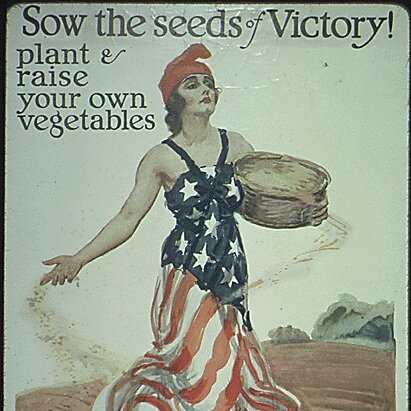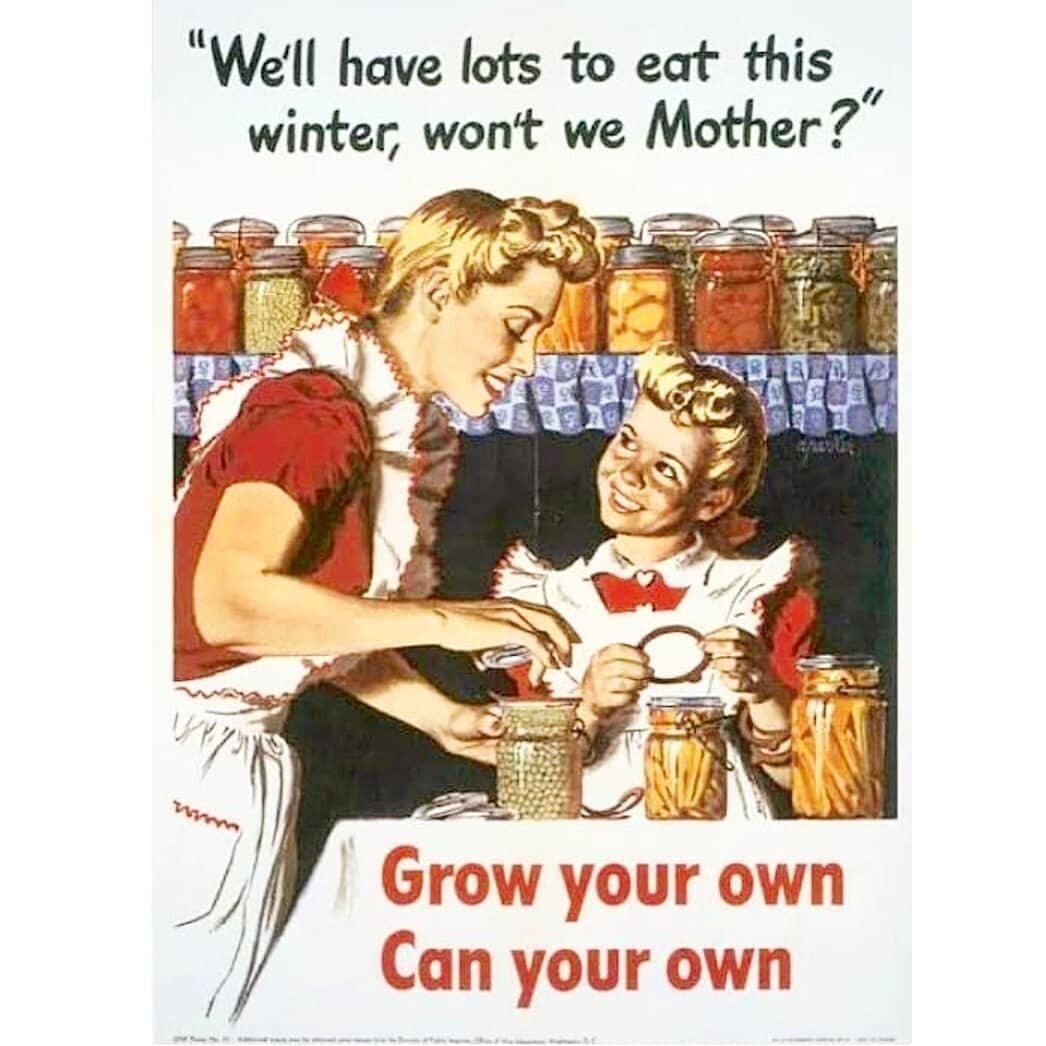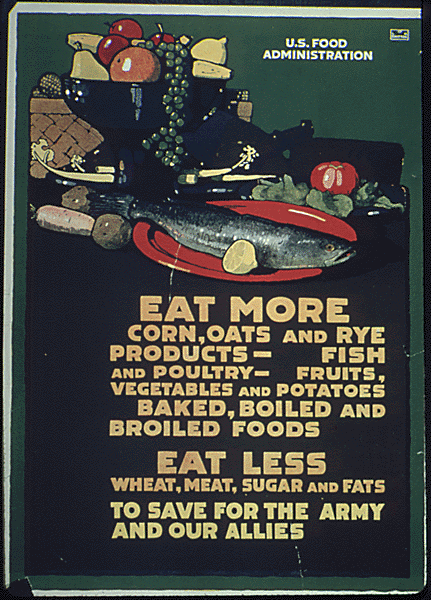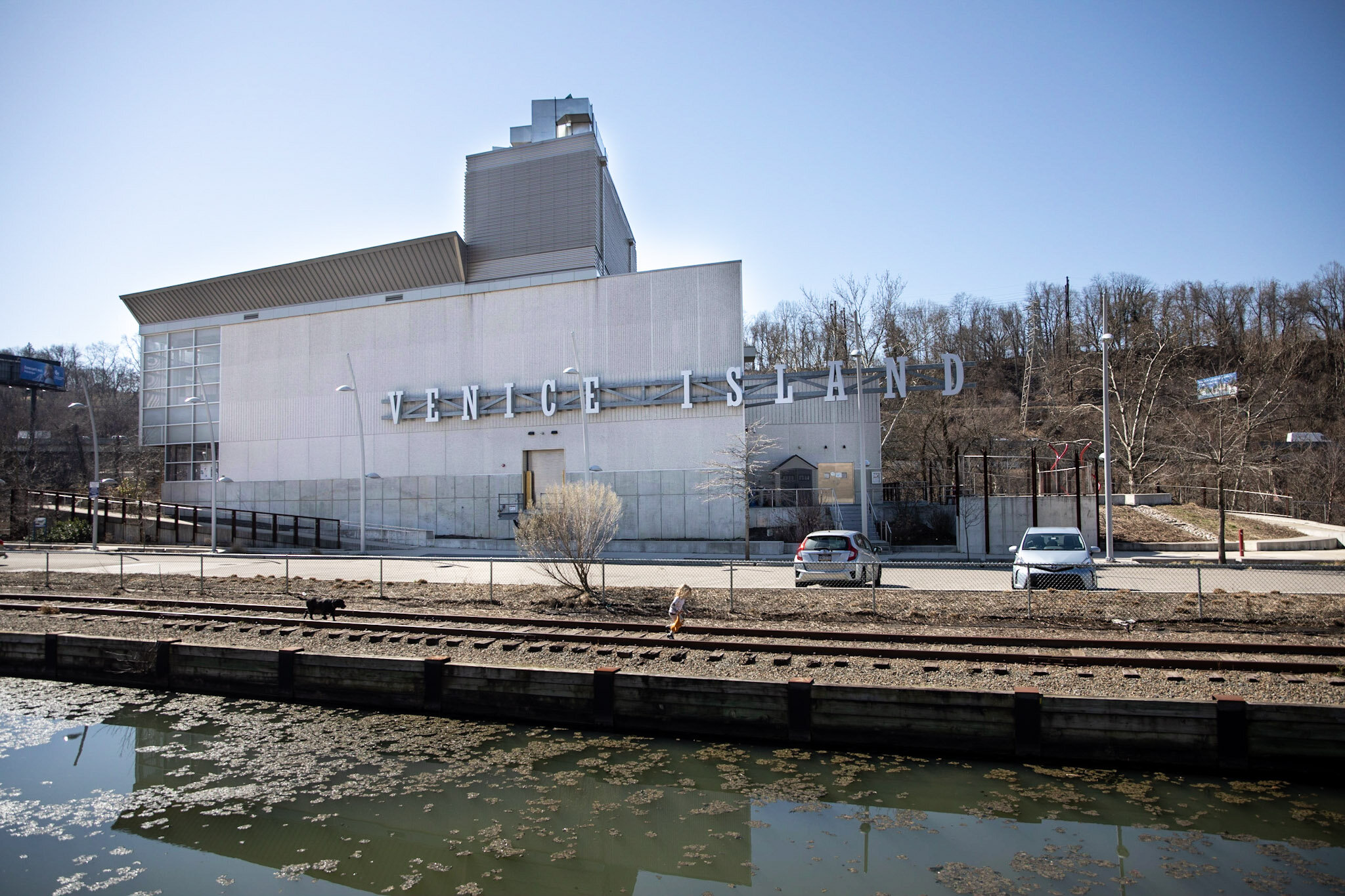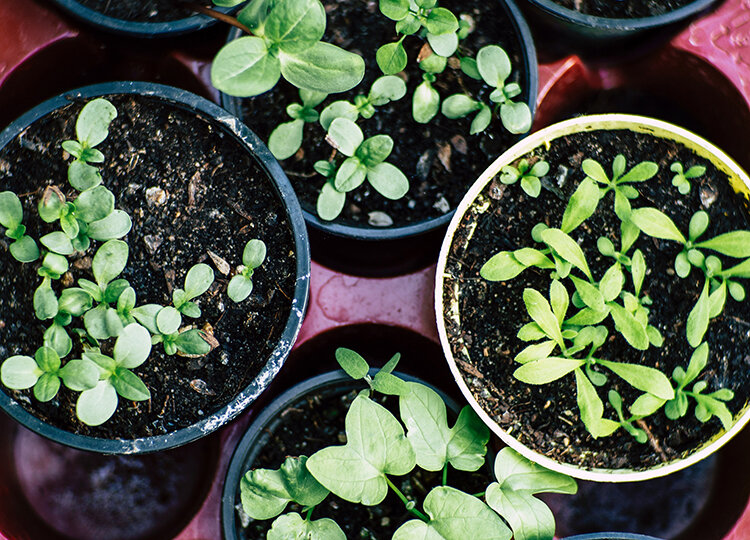Victory Garden Chancellor Avenue School, Newark, 1942 | Photo Courtesy of Newark Public Library
Energy: Grow Hope, Not Fear
By Meenal Raval
New words have crept into our vocabulary since last month. Self-isolation. Social distancing. Pandemic. No-touch transactions.
Fear about the COVID-19 pandemic has captured our focus. We now obsess about hand-washing, mask-wearing, and who touched something last. Even exceptionally healthy people like me are contemplating their wills.
Sad and frightening as the times are, our changed lifestyles have also been an exercise in low-carbon living — traveling less, buying food in bulk, cooking and eating at home, sleeping more, learning to meditate, and savoring this spring more than ever with daily (isolated) walks.
Office of War Information poster, 1943 | Image Courtesy of University of Illinois Digital Collections
For me, the convenience of takeout foods or eating at a restaurant has been replaced by cooking each meal at home, trying out recipes I’ve long wanted to.
The Earth, via a virus, has brought our globalized economy to its knees. This wake-up call has forced us all to rethink what’s essential and what’s a luxury — clothing and jewelry stores, beer wine and liquor stores, real estate activity, legal services, gambling, barbershops, nail salons and gyms, even restaurants and bars.
What’s essential seems to be food and health. Our heroes today are healthcare professionals and grocery store workers, and behind them, the people who grow, process and bring food to our grocery store shelves.
Listening to the Earth during this time, the messages I hear are that we can no longer go on killing and forcing into extinction wild animals, birds and plants without a violent response; that our own pollution of air, water and soils have brought us a plague; that global pandemics are symptoms of our own attacks on the Earth’s ecosystem.
What can you and I do about this? While our other activities have slowed down, a re-awakening of the importance of health and food could lead us into a space still accessible under a stay-at-home order: the garden.
A garden offers us fresh air, fresher now due to fewer cars on the road. A garden offers us a reconnection with the Earth, which could reduce COVID-19 ignited stress. A garden offers us time away from our screens, also a way to step away from the constant discussions about this virus. A garden offers for a teaching and learning experience with our neighbors, allowing for the mandated six-foot distance, of course, plus produce to share.
I recently made myself a jar of thyme infused honey, amazing for helping coughs, and also antimicrobial, antibacterial, and antiviral. Both thyme and honey could come from a local garden.
Don’t own land? You can grow medicinal herbs in a sunny windowsill; container plants on a balcony; raised beds on a patch of ground outside your front door; and of course, herbs and vegetables on a community garden plot. You could also think longer term and grow fruit and nut trees at your place of worship, or really on any vacant lot near you.
Image Courtesy of the National Archives and Records Administration
Victory gardens galvanized our nation in the past during WWI and WWII. Now, people are organizing #CoopGardens across our nation.
As the COVID-19 pandemic wreaks havoc around the world, economies are tanking, supply chains are being disrupted, and shortages of critical supplies and food items are already commonplace,” the Cooperative Gardens Commission writes on its site, urging people to take this opportunity to grow as much food as they can in their homes.
“We hope people in cities will take over defunct community gardens and vacant lots and fill them with life once more. We hope people in towns and suburbs who normally work hard to keep their lawns green will instead rip up grass and plant vegetable gardens,” the Commission continues. “And we hope rural farmers who normally grow big fields of commodity crops — folks who know how to farm and have a great capacity to produce lots of food — will set aside at least a portion of their land and labor to grow fruits and vegetables for their neighbors and for those in need in nearby communities.”
In such an uncertain time, seeing seeds sprout and grow can bring a lot of hope. It’s time to return to the promised garden.
References connecting coronavirus and the climate crisis:
-
New Dream, Armageddon—Or A Time for Reinvention?
-
We’re learning that much of what we spend our money on (shopping, going to restaurants and bars, sporting events, etc.) we don’t actually need.
-
-
Shareable, The Coronavirus Pandemic calls us to share more than ever
-
Will we hunker down, hoard, heap blame on the blameless, stay mesmerized by the media, spread fear, devolve in our isolation, and turn away from others?
-
Or will we rise to the occasion, fill the leadership void, share solutions, develop as people, and find our purpose in helping each other?
-
-
The New York Times, Social Distancing? You Might Be Fighting Climate Change, Too
-
Yale Environment 360, Coronavirus Holds Key Lessons on How to Fight Climate Change
-
“COVID-19 is climate on warp speed,” said Gernot Wagner, a climate economist at New York University and co-author of Climate Shock. “Everything with climate is decades; here it’s days. Climate is centuries; here it’s weeks.”
-
Fatih Birol, director of the International Energy Agency, last week similarly urged governments and international financial institutions to incorporate climate action into their stimulus efforts by funding investment in clean power, battery storage, and carbon capture technology.
-
In Sawin’s view, the pandemic’s multi-layered impact supports an argument U.S. Green New Deal backers have been making: Tackling our biggest problems in tandem may be more effective than taking them on one at a time.
-
-
Covid-19 is nature’s wake-up call to complacent civilisation | George Monbiot
-
One above all others has come to obsess me in recent years: how will we feed ourselves? Fights over toilet paper are ugly enough: I hope we never have to witness fights over food. But it’s becoming difficult to see how we will avoid them.
-
-
The Coronation | Charles Eisenstein
-
“COVID-19 has elevated death to prominence in the consciousness of a society that denies it.
-
“Should we blame the virus then (which killed few otherwise healthy people), or shall we blame underlying poor health?
-
“A certain schizophrenia afflicts the modern culture of health. On the one hand, there is a burgeoning wellness movement that embraces alternative and holistic medicine. It advocates herbs, meditation, and yoga to boost immunity. It validates the emotional and spiritual dimensions of health, such as the power of attitudes and beliefs to sicken or to heal. All of this seems to have disappeared under the Covid tsunami, as society defaults to the old orthodoxy.
-
“The crisis could usher in totalitarianism or solidarity; medical martial law or a holistic renaissance; greater fear of the microbial world, or greater resiliency in participation in it; permanent norms of social distancing, or a renewed desire to come together.
-
“At each junction, we can be aware of what we follow: fear or love, self-preservation or generosity. Shall we live in fear and build a society based on it? Shall we live to preserve our separate selves? Shall we use the crisis as a weapon against our political enemies? These are not all-or-nothing questions, all fear or all love. It is that a next step into love lies before us. It feels daring, but not reckless. It treasures life, while accepting death. And it trusts that with each step, the next will become visible.
-
“Novel coronavirus pandemic” means “a new coronation for all.”
-
-
George Tsakraklides, Die Capitalism, Die
-
George Tsakraklides, Calling all Doomers of the World: Assume Collapse formation, Isolate and Take Over
-
Counterpunch, Nature’s Revenge: Climate Change and COVID-19
-
You cannot go on killing and forcing to extinction wild animals and plants, including insects, birds, fish, and other countless forms of life on land, rivers, lakes and the seas without a violent response.
-
Environmental pollution gave birth to the cancer plague. The cancer pandemic was killing and continues to kill millions.
-
Virus pandemics are merely symptoms of these overarching anthropogenic attacks against the Earth.
-
Meanwhile, the corona virus has eclipsed climate change and everything else in America and the world. Yes, people are dying and the shutting down of the country has merits. But unless we c
onnect the virus with the horrors of climate change and the anthropogenic impoverishment of the planet, we imperil ourselves and this beautiful Mother Earth, Mother to All.
-
-
Grist, Marooned by that virus? Save New York with this board game
-
WHYY, Philly COVID-19 restrictions are hard, but the air’s cleaner
-
David Suzuki, Idle some more: a novel climate solution
-
The Guardian, ‘Tip of the iceberg’: is our destruction of nature responsible for Covid-19?
-
The Nation, Think Exotic Animals Are to Blame for the Coronavirus? Think Again.
-
Bloomberg, Climate Change Facts: Where Progress Is and Isn’t Being Made
-
Teen Vogue, Coronavirus Shows Us Rapid Global Response To Climate Change Is Possible
-
Films for Action, Coronavirus Capitalism — and How to Beat It
-
George Tsakraklides, Coronavirus is Earth’s Message
Cover image courtesy of the National Archives and Records Administration.

